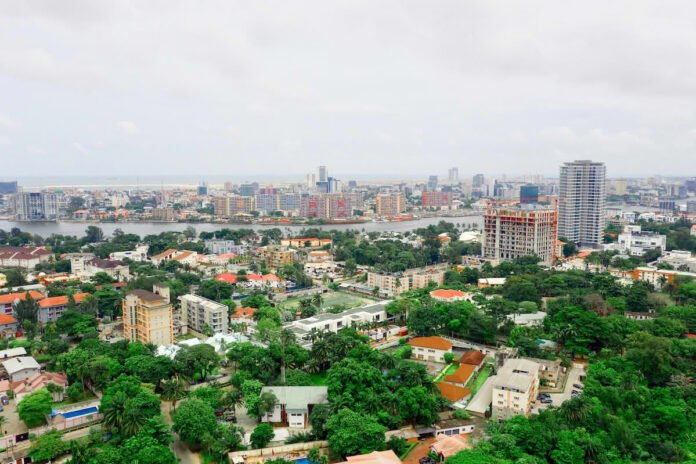South Sudan’s health insurance landscape is still in its developmental stages, characterized by an underdeveloped public health insurance system and a very limited private insurance market. Both systems are nascent and serve only small segments of the population, leaving the majority to rely heavily on out-of-pocket spending or donor-funded health services. Despite these challenges, understanding the differences and similarities between public and private health insurance is essential for identifying paths toward Universal Health Coverage (UHC).
Key Differences
One of the primary differences lies in coverage and accessibility. Public health insurance in South Sudan is extremely limited, currently serving only a portion of government civil servants, primarily in Juba. In contrast, private health insurance is estimated to cover around 5.4% of the population, mainly concentrated in urban centers and among employees in the formal sector. This makes private insurance slightly broader in terms of demographic reach, albeit still minimal.
Service delivery also differs significantly. The public health system is structured in a four-tier model—ranging from Primary Health Care Units (PHCUs) to State and Teaching Hospitals—designed to provide comprehensive yet basic services under the Basic Package of Health and Nutrition Services (BPHNS). However, the infrastructure is underfunded and poorly resourced. Private health insurance generally facilitates access to private clinics and hospitals, which are better equipped but expensive, limiting access to only those who can afford it.
Financing mechanisms also diverge. Public health insurance is government-funded with no widespread insurance scheme yet implemented, while private insurance is typically employer-based or individually purchased. The private sector operates on a for-profit basis, often relying on international insurers for expatriate services due to the weak domestic market.
Key Similarities
Despite their differences, both systems face significant limitations. Neither public nor private health insurance currently provides broad, effective coverage for the general population. Both are hindered by inadequate infrastructure, a shortage of trained medical personnel, and the lingering effects of ongoing conflict and instability.
Another shared trait is their urban focus. Both public and private health insurance schemes are mainly accessible in Juba and other urban areas, leaving rural populations vastly underserved. Additionally, both sectors depend to some degree on external support, whether from donor agencies, international health organizations, or expatriate insurance plans.
Public Health Insurance in South Sudan: Limited Coverage, High Potential
South Sudan currently lacks a comprehensive public health insurance system. Instead, the country offers a nascent insurance scheme, primarily targeting civil servants in Juba, underpinned by the government’s wider Basic Package of Health and Nutrition Services (BPHNS). While not formally labeled an “insurance,” this emerging fund represents the country’s only public prepayment model.
1. National Health Insurance Fund (NHIF) – Pilot Scheme for Civil Servants
- Cost:
Membership is typically funded by deductions from government salaries. While exact premium rates aren’t publicly standardized, a 2017 study found that 68% of public servants were willing to pay up to 5% of their monthly income into the NHIF medcraveonline.com+3mofp.gov.ss+3springermedizin.de+3pmc.ncbi.nlm.nih.gov+1p4h.world+1. - Available Services / Coverage Features:
The NHIF pilot is designed to complement the Basic Package of Health and Nutrition Services, potentially covering outpatient consultations, diagnostics, medication, emergency care, and referrals for inpatient services . - Open for All or Limited:
Enrollment is currently restricted to a limited group — government civil servants and public employees in Juba. Expansion to informal workers and wider national coverage is planned but not yet in place pmc.ncbi.nlm.nih.gov+11pmc.ncbi.nlm.nih.gov+11ss.uapoldmutual.com+11. - Core Financial Features:
Funded through payroll contributions deducted at source. Funds are pooled into a centralized NHIF account to reduce out-of-pocket spending at service delivery pmc.ncbi.nlm.nih.gov. - Consumer Satisfaction Score:
No formal consumer satisfaction surveys are yet available. However, willingness-to-pay data suggests strong initial support from public servants, with 68% ready to contribute up to 5% of their wage bmchealthservres.biomedcentral.com+7pmc.ncbi.nlm.nih.gov+7africaresearchconnects.com+7.
Top Private Health Insurance Providers in South Sudan
Despite the nascent private health insurance market in South Sudan, several regional and international insurers have established an emerging presence—primarily in Juba and other urban centers. Below are the leading private health insurers offering coverage to individuals, corporate employees, and expatriates:
1. Old Mutual South Sudan (via UAP/Old Mutual)(Official Website: https://ss.uapoldmutual.com/)
- Cost: Tailored premiums based on age, coverage limits, and region—all part of broader medical insurance plans.
- Available Services/Coverage Features: Offers comprehensive inpatient and outpatient coverage, emergency medical evacuation, dental and optical services within South Sudan and select African and South Asian countries ss.uapoldmutual.com+3ss.uapoldmutual.com+3iaa-southsudan.com+3ss.cicinsurancegroup.com.
- Open for All or Limited: Available to individuals, families, and corporate groups. Common among formal-sector workers and expats.
- Core Financial Features: Premium-based with regional pooling; covers multi-country treatment under unified medical plan.
- Consumer Satisfaction Score: No formal local metrics available; international brand reputation suggests moderate to high satisfaction based on service reliability and claim promptness.
2. CIC South Sudan (CIC Insurance Group)(Official Website: https://ss.cicinsurancegroup.com/)
- Cost: Variable; dependent on plan tier. Offers both group and individual products .
- Available Services/Coverage Features: Policies include inpatient/outpatient services, maternity, dental, optical, and emergency medical evacuation. Senior-specific plans available.
- Open for All or Limited: Accessible to individuals, families, SMEs, large organizations, and cooperatives.
- Core Financial Features: Premium-driven plans offering IPF (instalment payment facility), co-payments, and bonding for dependents.
- Consumer Satisfaction Score: No formal public data; African-wide CIC shows solid trust with moderately positive reviews, particularly for policy diversity en.wikipedia.org+14ss.cicinsurancegroup.com+14ss.cicinsurancegroup.com+14.
3. NIIC South Sudan (Nile International Insurance Co.)(Official Website: https://nilicosouthsudan.com/)
- Cost: Customised quotes based on employer-sponsored group plans or individual coverage tiers nilicosouthsudan.com.
- Available Services/Coverage Features: Inpatient/outpatient care, ICU, diagnostics, surgery, overseas referrals, and evacuation support.
- Open for All or Limited: Primarily offered through corporate or institutional employer contracts; not widely available to the general public.
- Core Financial Features: Group-based risk pooling; employer underwriting with flexible premium structures.
- Consumer Satisfaction Score: Anecdotal feedback suggests satisfaction is driven by ease of clinic access and evacuation support; provider base is small.
4. IAA South Sudan (International Assistance Association)(Official Website: https://iaa-southsudan.com/)
- Cost: Premiums based on personal or family international medical plan subscriptions en.wikipedia.org+5iaa-southsudan.com+5nilicosouthsudan.com+5pmc.ncbi.nlm.nih.gov+1ss.britam.com+1ss.cicinsurancegroup.com+1ss.britam.com+1.
- Available Services/Coverage Features: Inpatient and outpatient packages with designated hospitals and clinics; supports international referrals and multi-country claims.
- Open for All or Limited: Open to individuals, families, and corporate clients—particularly expatriates and NGOs.
- Core Financial Features: Emphasizes global access, often combined with international reinsurance; some plans offer cashless treatments.
- Consumer Satisfaction Score: Likely moderate to high among expat users due to direct-billing and ease of access in urban centers.
READ MORE: Private and public health insurance of Mauritania (Make informed choices)


